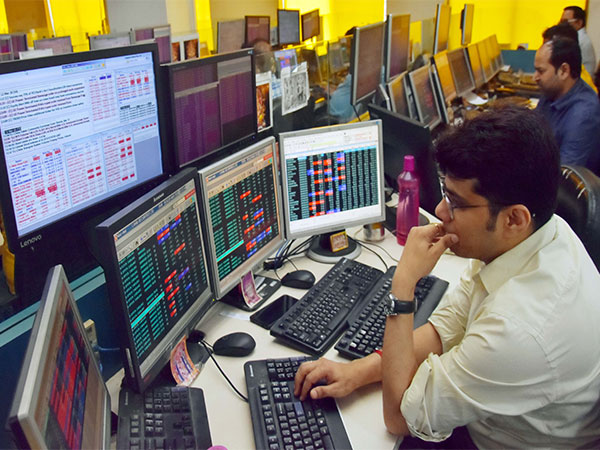Global Market Shifts and Policy Moves Stir Volatility: A Comprehensive Overview
Recent developments in global and domestic markets have stirred volatility, influenced by political uncertainties and economic policy changes. Affected sectors include equities, bonds, and currencies, alongside shifts in commodity prices. These movements reflect investor caution as global economic indicators fluctuate amid a backdrop of evolving political landscapes.

- Country:
- India
Domestic markets navigated a tumultuous period as they responded to both global economic changes and local data fluctuations, as detailed in a report by Union Bank of India. The 10-year government bond yield fell slightly to 6.82 percent, while the 5-year yield remained stable at 6.76 percent. These adjustments in bond yields underscore cautious investor behavior amid uncertain global conditions.
In the currency exchange arena, the Indian rupee suffered a notable depreciation, closing at Rs84.3725 against the US dollar from a previous Rs84.2800. Analysts point to capital outflows as a pressure factor, with investors redirecting funds to safer international assets.
The Indian stock market experienced a sharp downturn, dropping over 1 percent and losing prior gains. This decline was partly triggered by renewed volatility linked to the recent US presidential election, introducing fresh uncertainty in global markets. Experts attribute these shifts to geopolitical factors and forthcoming central bank policy decisions, which have instilled caution among Indian equities investors.
On the commodities side, Brent crude prices fell amidst mixed global economic signals, reflecting lower demand expectations. Conversely, gold prices saw a slight uptick, as investors gravitated towards safe-haven assets amid mounting market unpredictability.
In a notable policy development, the Bank of England announced a 25 basis-point interest rate cut to 4.75 percent, with broad Monetary Policy Committee backing aimed at controlling inflation. Similarly, the US Federal Reserve's 25 basis-point rate cut signals economic recovery optimism, despite geopolitical concerns from the recent US election.
In Asia, the People's Bank of China reaffirmed its growth-focused policies, with Governor Pan Gongsheng promising greater engagement with global financial markets. Meanwhile, German industrial output experienced a surprising 2.5 percent September decline, hinting at manufacturing sector slowdowns.
European retail sales posted a 0.5 percent monthly rise in September, reflecting cautious consumer positivity across the Eurozone, with a 2.9 percent annual growth rate. On a broader scale, 2024 is predicted to be the warmest year recorded, as noted by the EU Climate Change Service, preceding the UN COP29 climate summit in Azerbaijan. Despite prior US electoral outcomes dampening expectations, global climate funding remains a focal discussion point.
On a domestic note, BVR Subrahmanyam, CEO of Niti Aayog, discussed India's prospects in joining significant trade agreements like RCEP and CPTPP, which could benefit the nation's MSME sector responsible for 40 percent of exports. His comments underscore the strategic importance of global trade partnerships for India's economic landscape.
(With inputs from agencies.)
ALSO READ
Trump's Victory: A Catalyst for Stock Market Surge
Trump's Victory: A New Era for Global and Indian Stock Markets
Trump's Victory Sparks Stock Market Optimism: Impact on U.S. and Indian Markets
Sweden's Economic Boost: Interest Rate Cuts and Tax Reductions
Global Tensions Trigger Downturn in Indian Stock Markets










